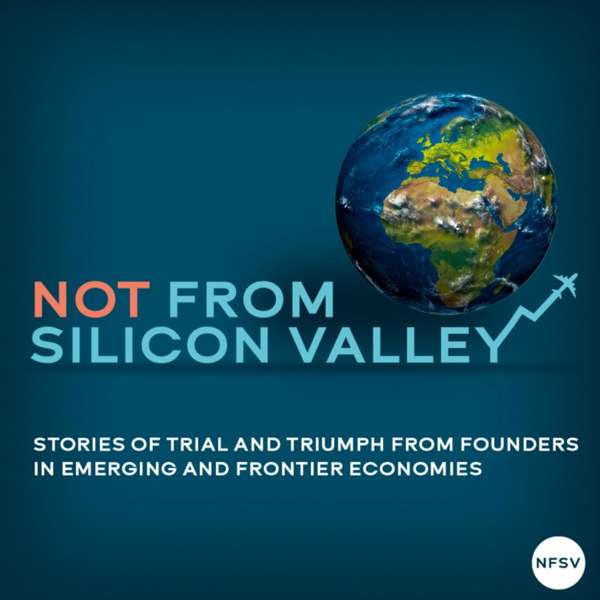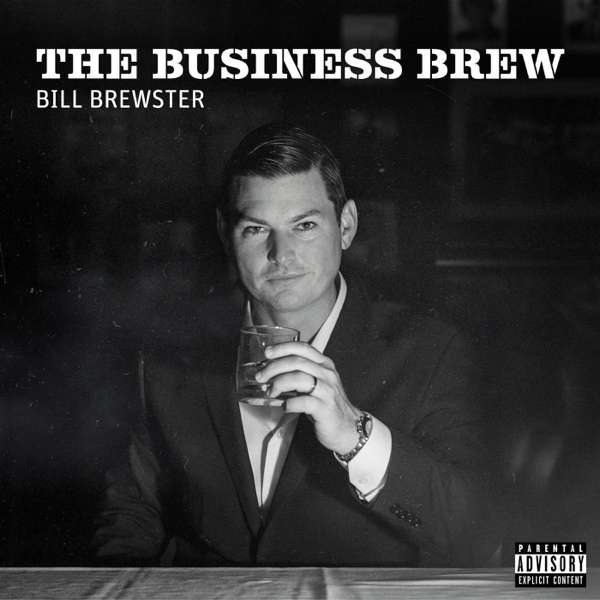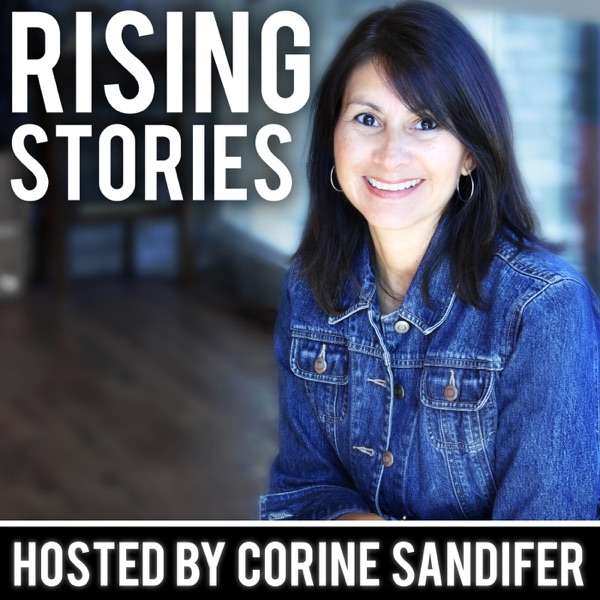Nikki Gamer: Hi, everyone, this is Nikki Gamer for Catholic Relief Services. And thanks for tuning into Behind the Story, a podcast series that gives you a backstage pass to putting your faith into action for global impact. In this episode, we’ll be talking to Sean Callahan, president and CEO, about his decades-long commitment to making a difference in some of the world’s toughest places. Sean shares his special relationship with Mother … now Saint … Teresa of Calcutta and some stories of her getting things done in sometimes surprising ways. And Sean will be talking about his bold new vision for the future—and about being at the precipice for creating transformational change for the world’s poorest people. Sean, welcome. It is so great to finally have you with us.
Sean Callahan: Thank you. Wonderful to be here.
Nikki Gamer: All right. Before we talk about what the future holds, I was hoping we could talk for a few minutes about some of your experiences. And you’ve been working for CRS for most of your career in the field. I don’t know how you would choose what to highlight—but, tell me, when you think about your career at CRS, what stands out?
Sean Callahan: Well, certainly working with Mother Teresa and some other Nobel laureates like the Dalai Lama and Desmond Tutu and Oscar Arias, some people like that. But Mother Teresa, I spent several years working with her in Calcutta and she was always very bold and wanted us to be bold in what we do. And so one of the occasions she called me up and said, “We need some trucks and supplies to go to Bangladesh.” And I said, “I can get you the supplies, but I can’t send them to Bangladesh because they were sent for India, and we need permission from the government.” So she said, “What do I have to do?” And I told her, and so she said, “Meet me at 2 o’clock.” So I loaded up the trucks, got down there at 2 o’clock, and there’s Mother waving these pieces of paper and saying, “Let’s go!” But she did something strange. She had six sisters with her, and put one sister in the first six trucks. And I thought, “Well, that’s a little strange, but if Mother wants to put a sister in the truck, great.”
Sean Callahan: It turned out, I found later that when they got to the border, there were 1,000 trucks. And as they got to this line of trucks, the first truck was going to pull behind the other ones. And he looked over at the sister, and the sister gave a hand motion, just said, “Keep going.” And he looked at her again, and she did it again, said, “Keep going.” So he passed the trucks, and the other trucks followed him, and they went down a little ways. And then the other truckers stopped them and started pulling out the driver because he was cutting in line, and they were a little bit upset. And he pointed over at the sister, and then they all got out of the truck and just waved them through. And so …
Nikki Gamer: Brilliant.
Sean Callahan: … there it goes. So one of her first miracles, you know.
Nikki Gamer: Brilliant. I love it. How do you bring your experiences to the vision you have for the next phase of our work?
Sean Callahan: You know, I must say, you stand on those who came before you. And I think the mission of CRS has just been an unbelievable mission, and I think we’re now poised to do even greater things and reach to the next level. And so, when I talk about us trying to be bold, you know, I reflect on Mother Teresa. She never said there was something she could not do. It’s just, how do we get it done? The other thing that Mother Teresa always taught me was humility. We need to be a little bit humble in what we do.
Nikki Gamer: Is there a danger in being too humble?
Sean Callahan: There can be a danger being too humble if we don’t tell people the right way to do things. And what I mean by that is the reason why I’ve supported CRS personally, and I’m really proud of what we do, is because our development is the best way to do development. When we did HIV/AIDS programming, and started out with our programming in that area, we did some research, and we went out there and we worked with the local communities. When the PEPFAR—the President’s Emergency Program for AIDS Relief—when they did some investigation of which programs have worked the best, they looked at four organizations. And we happened to be one, and our numbers were double the others. Now, they naturally thought, “Oh, this religious organization against these universities and these professional organizations, their numbers must be wrong.”
Sean Callahan: Well, they came back and found out that the numbers were right. And the reason the numbers were right, it was, basically, trust, that we had the trust of the local communities and so they could change their behaviors. So the fact that we’re linked to those local communities gives us the credibility to do that. And so the Church allows us to do that because it’s so present throughout the world. And that humility that our staff has in working with those local communities, and with the local Church, helps them become part of those communities. I was in Niger and took this bishop. And as we were going to these projects, he turned to me and he said, “I can’t tell the difference between the CRS staff and my staff.” And I just turned to him and I said, “Thank you, bishop.” Because that was …
Nikki Gamer: … the best compliment.
Sean Callahan: … the best compliment. Exactly.
Nikki Gamer: What’s kept you at CRS? Why stay for decades instead of going to another organization?
Sean Callahan: It’s really kind of, kind of funny. As I look back, I always considered myself one of the young ones at CRS, you know, when I first came in as an intern back in the good old days. And now it’s been 30 years, so over half of my lifetime I have been with CRS. My aunt and uncle were both Maryknoll missionaries. And so I grew up on the old slideshows of Maryknoll missionaries clearing landing strips in the highlands of Guatemala and things like that. And I felt that calling and all at different times. But I didn’t think that there was a place for a lay person, and so seeing it in CRS, seeing the contributions we could make …
Sean Callahan: And the job never stays the same because the world is constantly evolving. And in CRS, you can progress to different ranks. But each country you go to, each community—it’s like being a cultural anthropologist—you have to figure out how to solve the next problem. And we have fantastic staff … you just learn from them every day. And it’s really motivating to see the commitment that they have seeing people come out of complete destruction, and holding their heads high and having that dignity. I thought, “Other people need to know this, and we need to continue to support that.” And so that really touched me and has kept me with CRS these 30 years now.
Nikki Gamer: Let’s talk for a minute about your faith and what faith meant to you before starting at CRS, and how maybe your faith has even evolved over time.
Sean Callahan: As I’ve mentioned before, my aunt and uncle being missionaries and all, it was kind of part of the family. So you always contributed to the Church and you always did the Church, and it was part obligation and part who you were—that we went to church every week. And, of course, the priest loved us because they could get the Callahans there for 7a.m. Mass. And they had the three boys … would be out there being altar boys, because there’s six in my family. So, you know, good Irish Catholics. But then actually I saw my faith in a different way, and it was really living my faith as opposed to being of the faith. And so with CRS I see that we live that faith every single day and we see others living it. Seeing that we can live our faith in many different countries and with many different people, and that we’re not alone and it’s just not those Irish Catholics, but it’s those Hispanic Catholics and those African Catholics and those American Catholics. And we had one bond, one unity to move things forward.
Nikki Gamer: And what I didn’t know about CRS is that it’s in so many non-Catholic countries, and it’s across the Middle East. And even despite that, there is a lot of solidarity.
Sean Callahan: That’s one of the things I’m most proud of at CRS. I’ve been to Niger and the head of our program in Niger, his name is Ali Abdoulaye. And went up there, and with the bishops we were visiting various programs and the bishop said, “You know, Ali Abdoulaye, the head of a Catholic organization …” He said, “We got a problem here.” But he said, “That’s before I went out and saw your program.” He said, “Now when I look at the programs,” he said,” I’m thinking, ‘Wow,’ I was just looking down. Now I’m looking out and looking up. And we need to welcome other people in.” And he said,“The fact that in your programs you have an imam and his wife teaching smart couples how to better communicate and prevent diseases in their communities, how you have the Christians and the Muslims in this area that’s fraught with violence—and where some churches most recently were burnt—working together…” He said, “That is the true Gospel of the Church.” I’m hoping that we can be more and more of that convener of all different faiths because of that universality of the Catholic Church and the principles that we espouse.
Nikki Gamer: We’ve heard you say that we’re at an important point in our work here at CRS right now, where we can bring real transformation for the world’s poorest and most vulnerable people. What do you mean by that?
Sean Callahan: What I mean is, when I started with CRS, we did excellent work—but it was with a community, with a village, with a diocese. We have now grown that we do it with a country, with a region of a continent, with a whole continent. And so I think now we’re at the time that we can make worldwide change. So, the moment is special because right now we’re at the precipice. For instance, with malaria, we’ve done some work and we’ve got to a point where we can really just move that ball from the 10-yard line. We can move it down to the goal line and get it across that goal line. Similarly, with HIV/AIDS, we had built a reputation over the past 75 years that has helped people understand that they’re not fooling around when they say they’re going to do something. They actually get it done, and they do it.
Nikki Gamer: I want to talk about impact. Because critics of U.S. foreign aid, they might say, “Well, how do we know we’re making change? We keep sending money to the same poor countries over and over again, and we’re going to keep having to send them money.”
Sean Callahan: So, I love that question. Our current strategy is here to prove that—and we’re going to put out numbers that say exactly what we’re going to do. So when people say, you know, what can you do? Since our malaria programs have been operating in West Africa, the World Health Organization estimates that 5 million children are alive today that wouldn’t be alive. So to me, there’s 5 million lives that you have saved. When we look at agriculture, how many people are we going to bring up above poverty? So our goal that we’re looking at and our new strategy is, “Can we help 10 million farmers get out of poverty and earn a sustainable income for their families?” So this isn’t about, we’re “hoping” to do good. You’ll start seeing that these numbers are going to prove what we’re doing, and we’ll have third parties proving it.
Nikki Gamer: Those are amazing goal posts. However, to push back one more time, you know, so why does that matter to American Catholics? Why does that matter?
Sean Callahan: Well, it matters because we’re—you know, as many people say—we’re not in a world that’s isolated. I was just in Mexico and visited with a community that had migrated to Mexico. And I saw this woman holding a 2-month-old baby, and at her skirt was a 2-year-old girl. And so I went up to her, and I said, “Why would you have migrated from your home with a 2-month-old baby, you know, and a 2-year-old?” And she said,“’Cause the gangs tried to kidnap my 2-year-old, and I knew that if I stayed there, they would get her the next time. And so I just ran and got out.” So this woman isn’t looking to America as the economic opportunity. She’s looking for safety for her children. And so we need to be there, and we need to provide that security in her home country, so she’s not forced to migrate.
Nikki Gamer: And how do you see us working differently to accomplish this vision?
Sean Callahan: Let me give you a specific example. In Syria, they didn’t have much of a social service network or organization there, and so as we started working in Syria, we said to the local churches, “Do you have some people that you recommend that we build the capacity?” And we started off with one group—and to be honest with you, that group didn’t hang on, and they wanted to leave the country, and they left. And we did it with another group, and they didn’t stay either and they left. And then we got this third group, and now they’re staying and they’re building up. So it’s not that it works the first time when you try to do this. But we had the commitment along with some of our other partners, and we work with Catholic agencies around the world from Europe, and from Oceania, and from Africa and other places all together trying to build the capacity of these local partners. And so once you build those capacities, then it’s continuing to elevate their level. And we see now in the United States when you go to the various parishes and, and my parish, I’ve had a Cameroonian and a Kenyan priest in my diocese. And so they’re now, the people that we were building the capacity, coming back and giving back to us in the form of priests and religious communities. And we can continue to go and learn from them. So it’s really a two-way street of capacity building.
Nikki Gamer: It’s a little bit like success looks like working ourselves out of a job.
Sean Callahan: It is. And we constantly say that. Now I will caveat that, unfortunately, I don’t see us working ourselves out of a job tomorrow because there’s too many countries that are in strife right now, too many countries that are subject to violence and too many countries where the human dignity of the family is not respected. So once people understand that peace costs a lot less than war,when people understand that helping your brother and sister is a lot better than exploiting your brother and sister—then we will be truly out of a job.But then the Kingdom of God will be here already, and we’ll be ready to take our next step.
Nikki Gamer: What do you see as some of the biggest challenges as we try to make this transformational change?
Sean Callahan: The first challenge is in the United States.We are very busy people, very generous, generous people, but also very busy, and it’s to convince the people in the United States that it is worth it for them to invest in their brothers and sisters overseas. I’d say the second one is, internationally, a movement for peace—that we really have to assist as we can as Americans and as universal and global citizens—is stopping the wars or preventing wars that are going to happen. Because war ends up setting back the time clock on development for all these different people. That’s why, in our new strategy, not only do we have these ambitious goals moving forward, but we also want to interject peacebuilding and nonviolence into everything that we do.
Nikki Gamer: And social cohesion.
Sean Callahan: Social cohesion—building and binding these people and strengthening their capacity. We want communities to be together.
Nikki Gamer: For our Catholic donors, our amazing Catholic partners here in the U.S. They’re listening to this podcast, and they really believe in the mission of CRS and where we’re going. What can they do to be a part of that transformation?
Sean Callahan: The contributions they make—and hopefully they’ll continue to make and see—are really having definite results and we’re committed as an agency to show them the positiveness of that result. The other thing that I think they need to do is welcome others. I think we need to be able to share this wonderful work that we’re doing, these experiences with others.
Nikki Gamer: So how does being a faith-based organization make us different than secular organizations?
Sean Callahan: Well,the first thing is, the most important aspect of development is trust, is gaining that trust of local community. So some organizations parachute into areas because they don’t have a natural network or setup in there. As a faith-based organization, we have local organizations throughout the world. So, we’re part of a Caritas international organization. There’s 165 members, and we have a Catholic diocese or a Catholic religious order or social community in every country in which we work in. And so right away, we’ve got an acceptance with the local community because we’ve had people who have earned that local trust.
Sean Callahan: We also have the ability to raise things up to a different level within countries because of that Catholic community. I happened to be in Guinea at the time when they said, “Uh-oh, the Ebola virus has arrived here.” And there was real panic, and in there and Liberia and Sierra Leone. But what ended up happening is the governments took some steps, and the steps were to separate people, and they often did it by force. And that wasn’t accepted by the local community. It made people more panicky and didn’t solve the problem. Because the problem was behavior change.
Sean Callahan: So, the governments finally reached out to the religious community and the faith leaders and said, “How can you help us?” And the first thing we did was safe and dignified burials, because a lot of the virus was being passed in the traditional custom of washing people and caring for them after their death. And so our staff went in with protective gear on and helped them have these traditional customs taken care of, but done in a safe way. And so it wasn’t force that stopped the Ebola virus, but it was behavior change. And because these religious communities had the respect and trust of the local communities, they were successful in doing so.
Nikki Gamer: You really can see that this work impacts you in a really deep way. What does this job mean to you?
Sean Callahan: I always kind of reflect and, you know, I think about things before I’m going to say ’em, so I try not to get emotional. But, you know, as I see the faces of these little children and think of my own kids and things like that, and think, you know, “What should I be doing, what can I be doing?” These children around the world aren’t some foreign kids. They’re a gift from God, and we need to play that role in helping those lives thrive. And so I personally see each one of these as one of my own children and that we need to do something to make sure that they have that safe opportunity like I would for one of my own biological children.
Nikki Gamer: What does your wife or your kids think about the work that you do? And you must travel so much that you might not see them as much as you’d like.
Sean Callahan: I think my family, on the one hand, kind of curses the work I do ’cause I’m away. But we’re blessed in the United States to have a relatively easy life. But I’ve also been blessed that my daughter was able to spend a summer with the Missionaries of Charity in Calcutta working in their centers. My wife has been out to visit the programs, and my son, because my wife is from Calcutta, that’s a second home to him, and he’ll be going back this coming summer. So, they need to be able to see and experience, and see that they’re not just an Irish American from this little town in the United States, that they’re actually a citizen of the world. And so when they hear about our work and they see it, they don’t like me being away, but they do love the work that we’re doing.
Nikki Gamer: Sean, what do you see as the next frontier?
Sean Callahan: I really think the next frontier is ensuring a peaceful world where we work. And so really building on that peace and reconciliation, the different countries and stopping wars before they start. Because after a war, it takes 10 years to recoup to the same level and 20 years to get any development. So for us to be successful in the future, we can’t respond to wars. We have to be there to prevent the wars, and so we need to do more in the advocacy, more in mobilizing people in the United States, more in using our influence to not allow the Syrias and the Iraqs to happen. We’re lucky at CRS to be able to do the work that we do and to work with the people. I just invite others to join with us in this work because I think once they feel what we feel, and once they see what we see, and once they know the people that we know, it can’t help but enrich their lives. And then they can’t help but assist these people in a new way that will make the world a better place for their children and ours.
Nikki Gamer: Well said.
Sean Callahan: Thank you.
Nikki Gamer: Sean Callahan. It has been a real pleasure. Thank you for sharing this with us.
Sean Callahan: Pleasure’s all mine. Thank you.
Nikki Gamer: As you’re heard, behind every CRS story are the people who put faith into action to help the world’s poorest people create lasting change for themselves and for their communities. Sean—he is certainly one of those people, but there are thousands of other stories like his … and we want to share them with you. Thank you so much for listening.
The post Looking Forward first appeared on CRS 75th Anniversary.

 Our TOPPODCAST Picks
Our TOPPODCAST Picks  Stay Connected
Stay Connected







